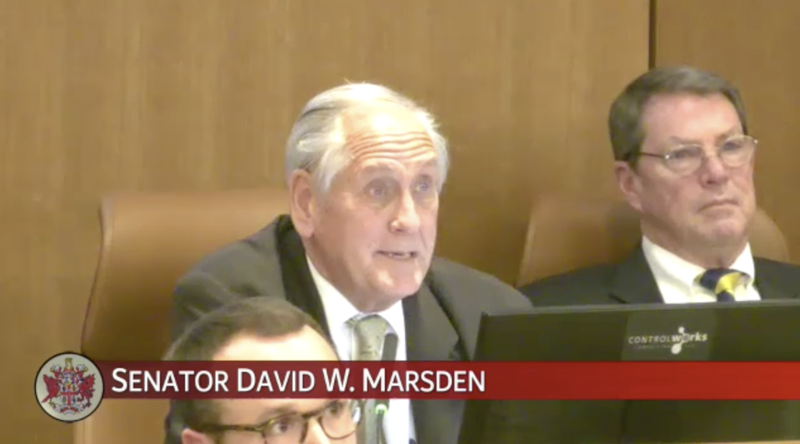(The Center Square) — One of the bills to watch for Virginia’s 2024 legislative session — legislation that would have repealed the 2021 law tying the commonwealth’s vehicle emissions standards to California’s — died in a Senate committee this week.
Senate Republicans attempted to persuade the committee not only of the infeasibility of California’s electric vehicle laws for Virginia due to EVs’ higher price tags, mechanical flaws and lack of demand, but of the injustice of allowing California’s policies to dictate Virginia’s.
“We, in every sense of the word, ceded our authority to the air board of California — not even the California legislature, just their air board,” said Sen. Richard Stuart, R-King George. “That was part of the big frustration for me, and it is now: We are not determining our own destiny.”
Committee member Sen. Ghazala Hashmi, D-Chesterfield, defended the Clean Cars, saying Democrats were responding to their constituents.
“There are only two emissions standards in the country. One is the federal standard and the second is the more strict California standard, so I would argue that we did not cede our authority to California. We adopted the stricter standard in order to meet our own zero-emission goals,” Hashmi said.
Republicans repeatedly assured Democrats that they, too, want a clean environment but that California’s goals are simply unattainable for the commonwealth.
Under California’s zero-emission vehicle program adopted in 2022 to reduce greenhouse gas emissions, 100% of California’s new car sales must be ZEVs by 2035. This transition will begin by requiring 35% of new vehicles sold to be ZEVs and plug-in hybrid electric vehicles by 2026 and 68% by 2030. PHEVs, which operate both with traditional internal combustion engines and battery power, are allowed to contribute to 20% of a manufacturer’s zero-emission quota if they have an all-electric range of 50 miles or more.
This program, adopted by Virginia in 2021, requires automakers that fail to meet ZEV standards to pay a $5,000 fine for each ZEV credit they fall short of, with four ZEV credits earned for each EV sold and 1.3 credits earned per plug-in-hybrid with a range of 50 miles or more.
As of 2021, no manufacturers have been fined, given that it’s possible for manufacturers to bank ZEV credits for future use, trade or sell them – as Tesla did for billions of dollars in revenue – or earn credits by over-complying with corporate average greenhouse gas emissions targets. However, things may change in the 2026 model year, when ZEV requirements increase significantly and the fine per credit short rises to $20,000, which means Virginia could stand to gain major revenue from automakers that fail to reach the state’s new California-sourced standard.
Even though generous national, state and local subsidies exist to bring the cost of a new Tesla under $20,000 for qualified individuals in California, ZEV sales nationwide fell 300,000 units short of expectations in 2023, in part driving Ford to cut production for its Lightning pickup truck. According to the latest analysis of vehicle inventory data from Cox Automotive, EV inventory surpassed ICE inventory in the middle of 2023, with EVs now having 114 days of for-sale vehicle inventory supply compared to an industry-wide average of 71.
Despite Republicans’ concerns about the state’s energy infrastructure capacity, electric vehicles’ performance in hot and cold weather, the disposal of their batteries and other issues, Democrats on the committee remained committed to the Clean Cars Act.
Committee Chair Sen. Dave Marsden, D-Fairfax, supports the law but plans to meet with corporate and environmental groups to discuss more options regarding the Virginia Clean Economy Act and the Clean Cars Act.
“An aspirational bill is an aspirational bill. Unless you provide the mechanics by which it can succeed, we have a problem, and we have mechanical problems in our aspirational goals to do what everybody here wants to do, which is to have a cleaner environment,” Marsden said.
The Democratic-majority Agriculture, Conservation and Natural Resources committee voted 8-6 to pass the bill indefinitely, effectively killing the bill this session.







